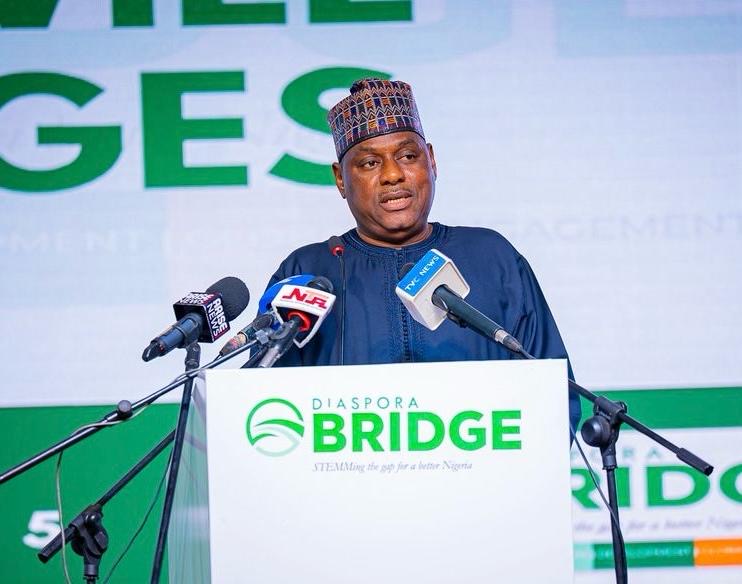For decades, Nigeria’s diaspora has been celebrated for sending home billions in remittances — over US$20.5 billion in 2024 alone, more than the country earned from crude oil exports. But for all the financial inflow, national development has often lagged behind. Now, a new government-backed platform is betting that expertise, not just money, is the missing ingredient.
The BRIDGE initiative — short for Bridging Research, Innovation, Development & Global Engagement — is designed as a digital matchmaking hub connecting Nigerian institutions directly with skilled professionals abroad. Instead of relying on speeches and goodwill lists, BRIDGE offers a live request-and-offer dashboard: hospitals can call for specialised surgeons, universities can request guest lecturers, and creative hubs can seek mentorship from international industry leaders.
What sets BRIDGE apart from past outreach programmes is its removal of financial and logistical barriers. The government will cover travel, accommodation, and local transport for diaspora participants — ending the pattern of volunteers cancelling due to prohibitive costs or visa issues. Already, more than 3,500 professionals — from neurosurgeons at the Mayo Clinic to renewable-energy engineers at Siemens — have signed up, pledging to share skills without seeking payment.
The platform’s early pilots have shown promise. Diaspora cardiac surgeons have performed dozens of complex operations in Lagos, while fintech founders like those behind Flutterwave and Paystack have demonstrated the multiplier effect of returning expertise — raising over half a billion dollars in venture funding and creating thousands of jobs.
Still, the path forward is not without obstacles. Infrastructure gaps — from erratic electricity to limited broadband penetration — could disrupt both in-person and virtual collaborations. To avoid the fate of previous failed schemes, BRIDGE will publish quarterly progress reports, conduct independent audits, and empower a citizen oversight panel to monitor results and investigate complaints.
Beyond healthcare and tech, the platform is gearing up to link agronomists with local farmers, filmmakers with Nigerian studios, and climate scientists with clean-energy startups. Crucially, these are meant to be recurring engagements — a true “brain circulation” rather than one-off charity missions.
If BRIDGE delivers on its promise, it could shift the country’s narrative: from exporting its brightest minds to weaving them back into the nation’s fabric, creating a self-sustaining cycle of skills, innovation, and national pride.

